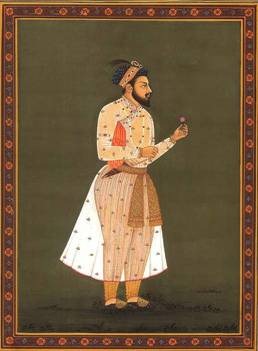Aurangzeb’s religious policy

Other Important Facts-
- What was the history of Aurangzeb?Marathas Conflict and Deccan Policy
- What were the major events of Akbar’s period?
- Who was dara shikoh
- What was the noorjahan faction
- Shah Jahan’s empire expansion and war of succession
Aurangzeb was a staunch conservative Sunni Muslim, he considered the importance of Islam as the basis of his rule to the Qur’an (Shariat).
1559 AD In Aurangzeb, many Ordinances have been circulated for the reorganization of the rules of Islamic conduct according to the laws of the Quran.
Aurangzeb’s main goal was to make this country (India) as Dar-ul-Herb (the land of the infidels) in the place of Dar-ul-Islam (Country of Islam).
Aurangzeb was also known as the imperial dervish because of his obedience to Islamic laws, for his hardhearted Sunni people, living regularly and following their simple living and performing prayers regularly and not drinking alcohol throughout their life.
Aurangzeb introduced his fanaticism from the beginning, banning kalam (rectangles of the Qur’an) on his coins, organizing the Parsi New Year Noros, public concerts, cannabis production, drinking and gambling etc.
Aurangzeb 1663 AD Banned the practice of Sati and imposed a pilgrimage on Hindus – tax. Although before that Akbar tried to stop the practice of Sati, but Aurangzeb stopped it completely.
Aurangzeb in 1665 AD In 2.50 percent of the Muslim traders on saleable goods by a state, while the Hindu traders set the customs duty at the rate of 5 percent of the goods. In 1667 AD The Muslim traders completely free from this duty.
Aurangzeb in 1668 AD Banned Hindus-festivals and festivals to be celebrated in.
1669 AD In Aurangzeb, all the states and princes were ordered to hand over Hindu temples and schools so that Hindus could not promote their religion and education.
As a result of the order of Aurangzeb 1669 AD Vishwanath Temple in Banaras, Keshavaraya Temple built by Veersingh Bandela and Somnath temple of Gujarat were found in Mathura.
The 11th year of the rule of Jharkhand Darshan and the 12th year of the rule of Tulsan (the King weighing with silver and gold) was finished.
Aurangzeb in 1679 AD Jijiya again, though, in 1704 AD. Take this tax from the Deccan.
Aurangzeb’s Jijiya tax was aimed at pure political by virtue of not being religious, because he wanted to mobilize Muslims against Marathas and Rajputs.
Aurangzeb stopped the practice of burning pigeon peas and other tombs on Thursday night (Jumeirat).
Whether people are living in accordance with the sacred law (Shariat) or religion. To take care of this, Aurangzeb appointed an official named Muhtasib (Public Dignity Inspector or Dharma Officer).
Reference : https://www.indiaolddays.com/





